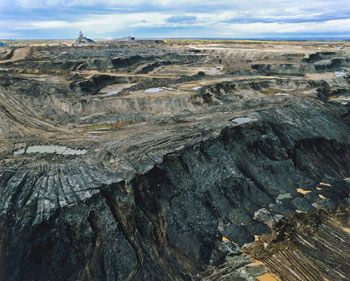Canada is becoming a tale of two countries as more progressive parts of the country move on renewable energy and climate change, while the federal government focuses on tar sands profits and exploitation.
Last month, Ontario, Canada’s most populous province, announced it would close its last coal-fired power plant. Next year, Thunder Bay Generating Station will be converted to a biomass plant that runs on agricultural and wood waste. The province’s climate change plan sets a target of renewable energy supplying 50% of electricity by 2025.
Calling the plan "the strongest action in North America to fight climate change," Premier Wynne says coal costs Ontario about $4.4 billion a year in health, environmental, and financial damages.
British Columbia has a successful carbon tax and outright rejected a tar sands pipeline; Quebec has a cap-and-trade program that’s about to link with California’s starting January 1 2014.
Federal Government Does the Opposite
On the other side of the ledger is the federal government, which last week gave Royal Dutch Shell the go-ahead to expand tar sands in northern Alberta, boosting production there by some 100,000 barrels a day.
Another 50 square miles of remaining Boreal Forest – the largest freshwater source on earth – would be clearcut as Canada continues to chip away at the only ecologically in-tact temperate rainforest on earth.
Amazingly, Canada’s environment minister says that although expansion "will likely have significant adverse environmental effects", they are justified by increased economic output.
Looks justified, doesn’t it?

For the first time, a Canadian First Nation is officially challenging this tar sands development on the grounds of aboriginal rights. The community is already reeling from abnormally frequent cases of rare cancer, and deformed fish in the rivers are now commonplace from poison air and water.
"The feds have a responsibility along with the province to fully engage the First Nations in consultation – which they refuse to do – when it comes to major development," Allan Adam, chief of Athabasca Chipewyan First Nation, told The Globe and Mail. "This time we’re going to take it all the way, and we’re going see first hand what the government was thinking when they went ahead and developed this plan without first nations’ involvement."
And as polar bears struggle to survive as their home melts away, Canada tripled the hunting quota and plans to raise it even more. With scientists predicting two-thirds of polar bears will be gone by 2050, the population can’t afford more losses. 740 Canadian polar bears lost their lives from hunting in 2012, almost 80 more than the average over the previous five years. The most healthy populations left are in Canada.
Last week, at the biennial international Polar Bear Agreement, which took place in Moscow, five nations that are home to polar bears signed a declaration that acknowledges the importance of addressing climate change and reducing additional stressors on polar bears such as poaching and hunting. Canada, Denmark, Norway, Russia and the US signed on.
"Global sentiment on this issue seems clear, as most every country has banned the trade and commercial export of polar bear parts," says Elly Pepper with the Natural Resources Defense Council. "Yet Canada continues to allow substantial harvest and trade. Their populations are perhaps key to the species climate change survival, making the country’s outlier stance all the more vexing."
Unfortunately, polar bear hides are in demand, especially in China, where they can sell for up to $80,000 each.
Resolute Loses Forest Certification
If the federal government behaves this way, that opens the door for poor practices among the country’s corporations.
Resolute Forest Products, Canada’s largest logging company and the world’s largest Forest Stewardship Council (FSC)-certified company for best forest management practices, has lost three sustainability certificates for 17 million acres of land.
No longer can Resolute use the FSC label on pulp, paper and wood products from a vast area of Boreal Forest in Quebec’s Lac St-Jean and Ontario’s Black Spruce-Dog River Matawin regions.
Rainforest Alliance, the auditor for Resolute, based its decision on the company’s failure to meet sustainability principles, such as getting free and informed consent of First Nations and protecting old growth forests and threatened woodland caribou herds.
Many large corporations now buy these products only from FSC-certified forests, which will severely restrict the marketability of Resolute’ products.
